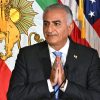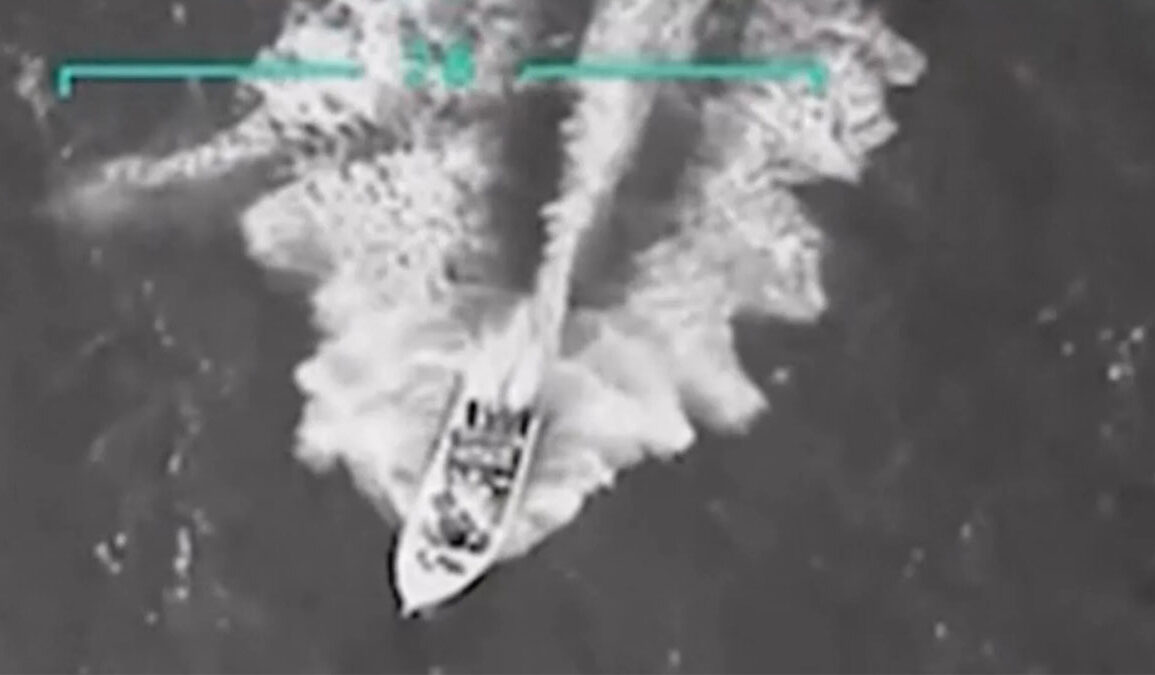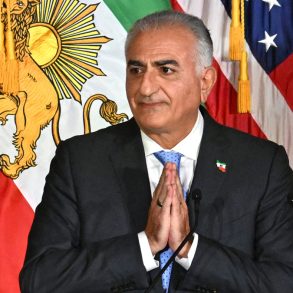Over the past month, the United States has struck four boats in the Caribbean that officials linked to drug trafficking networks tied to Caracas. Publicly, the White House frames the campaign as counter-narcotics and homeland defense. Privately, many analysts see a sharper purpose. As one expert put it, the evolving posture “looks like we’re in the throes of a 21st-century version of gunboat diplomacy,” with the goal to force a transition of power “out of Maduro’s hands and into someone else’s,” without a ground invasion.
Warships, aircraft, and a nuclear-powered attack submarine have moved into position. Ten F-35s were sent to Puerto Rico, and more than 4,000 sailors and Marines are in the area. A senior defense official told reporters that U.S. force levels create options. Mark Cancian of the Center for Strategic and International Studies explained, “The U.S. just doesn’t have enough forces there” for a full-scale invasion, but Washington “put in place the capability to launch strikes at either the cartels or the Maduro regime.” He added that he would “bet” on more strikes against cartels, but he would not rule out action against regime targets if needed.
What the U.S. has actually hit
U.S. forces have carried out lethal strikes at sea, including one attack that killed 11 people on a vessel officials said departed Venezuela with drugs. Imagery shared by U.S. leaders tied boats to Venezuelan criminal networks such as Tren de Aragua. Secretary of State Marco Rubio described a recent interdiction this way: “Instead of interdicting it, on the president’s orders, we blew it up. And it’ll happen again.” He later told reporters that the United States would “use the full power of America” to take on drug cartels that threaten Americans.
Why hitting cartels weakens Maduro
The strategy targets the money lifelines that help keep Nicolás Maduro in power. Ryan Berg of the Center for Strategic and International Studies said Venezuela under Maduro is a “criminal regime” where state institutions and the military move shipments and profit from illicit economies. Brent Sadler, a retired Navy officer and senior fellow at the Heritage Foundation, argued that if you weaken cartel networks, “then the regime itself becomes unsustainable. You don’t have to go in guns blazing — you let it crumble under its own weight.” Cancian warned that if strikes expand inland, they could “easily” hit the intelligence service or the Ministry of Defense, where cartel activity and regime control blur together.
Behind the scenes, officials have prepared a legal case that treats this as an armed conflict with narco-terrorist groups. Berg called it “the clearest signal yet” that departments have built a justification for precision strikes. The current force package allows Tomahawk or similar weapons to hit carefully selected targets without risking large numbers of U.S. personnel. As one White House letter to congressional leaders put it, “It is not possible at this time to know the full scope and duration of military operations that will be necessary,” and U.S. forces “remain postured to carry out further military operations.”
Could this escalate inside Venezuela?
If cartel infrastructure sits inside state facilities, pressure will grow to strike on land. Rubio did not rule out that path when asked directly. He said, “We are going to take on drug cartels wherever they are, wherever they are operating against the interests of the U.S.” Multiple officials told reporters that Tuesday’s deadly boat strike was “just the beginning” of a much larger campaign to rid the region of narcotics and potentially squeeze Maduro’s inner circle until it fractures.
Venezuela’s conventional forces are weak. Analysts say the regime could rely on cartel allies and proxies to hit back. Cancian warned that Maduro could “facilitate their retaliation,” including attacks on DEA agents or American citizens in the Caribbean. Yet regionally, few leaders are eager to defend Caracas. Many governments that suffer from Venezuelan-driven migration and crime would quietly welcome an end to Maduro’s rule. As Venezuelan activist Erik Suarez put it, “Venezuela represents a huge national security threat — not only ideologically, but to homeland security.” He warned that the regime issued passports to Hezbollah members and targeted dissidents abroad.
For Marco Rubio, this moment caps years of pressure. He has called Maduro “an indicted drug trafficker in the United States” and a “fugitive of American justice.” In 2019 he warned that if Maduro remained in power “Vladimir’s military” would be in the hemisphere, a direct threat to U.S. security. This year he helped elevate designations that treat Venezuelan networks as terrorist organizations, which in turn allows the United States to use every tool available. After the latest strike, Rubio said the president has authority “under exigent circumstances to eliminate imminent threats to the United States.”
History shows a country broken by corruption and force. The July 28, 2024 election was described as fraudulent. Opposition volunteers digitized more than 83 percent of the tallies and concluded that Edmundo González Urrutia won decisively, only for the regime to declare victory for Maduro and refuse to release official counts. A harsh crackdown followed. “Operation Knock-Knock” brought mass arrests, raids, and intimidation. “Maximum punishment. Justice,” Maduro demanded at a rally, adding, “There will be no forgiveness this time.”
Reports accuse the regime of crimes against humanity. Thousands of political prisoners sit in cells, and families live in fear of late-night arrests. Ordinary Venezuelans now assume their phones can be searched for memes and messages. Carolina Jiménez Sandoval said, “I don’t think I have ever seen this ferocity,” describing the escalation in repression. The economy has collapsed, the bolivar has plunged, and the minimum wage is worth almost nothing. Nearly eight million people have fled, and a third of households depend on money from relatives abroad. One man summed up the hopelessness: “There’s no future here.”
Why a tougher U.S. stance is justified
The United States is treating this crisis as a national security threat because the Maduro regime has fused politics, military power, and organized crime. Former Attorney General William Barr indicted Maduro and top officials for narcotrafficking in 2020. Washington raised the bounty on Maduro to $50 million. The administration sanctioned the Cartel of the Suns as a global terrorist group and designated Tren de Aragua a terrorist organization. As one U.S. statement to regional allies put it, “The Maduro regime is an enemy of humanity.” Secretary of State Antony Blinken said there was “overwhelming evidence” that Edmundo González Urrutia won the most votes in the July 28 election.
Analysts outline two main paths. The most likely is a forced exit driven by pressure that splits the inner circle and the armed forces. The less likely is a negotiated departure in which corrupt but non-terror linked figures seek limited immunity and convince Maduro to go. Either way, cutting off cartel cash and showing credible U.S. military options make each day in power harder for the dictator and his patrons.
Dare we speak about a post-Maduro Venezuela?
Rebuilding will be difficult, but not impossible. Opposition leaders like María Corina Machado and Edmundo González Urrutia have plans to stabilize the state and restart growth. One proposal envisions a growth strategy large enough to triple GDP and turn Venezuela from a criminal hub into an energy hub. Recovering stolen assets would help. U.S. agents have already seized hundreds of millions linked to the regime, while investigators have identified tens of billions more in dirty assets abroad. With free elections, rule of law, and market reforms, Venezuela can move from collapse to boom.
Venezuela asked the U.N. Security Council for emergency talks over “mounting threats” and claimed U.S. strikes endangered regional stability. Russia and China backed the request. At the same time, Maduro called up militias, threatened opponents, and repeated the claim that Washington seeks regime change. He warned President Trump to be “careful” because Rubio wants his “hands stained with blood,” while keeping quiet channels to U.S. envoys for prisoner exchanges and limited oil licenses. Even allies notice the contradiction. As one former official asked, “Are we going to invade Venezuela and depose the regime when it’s offering most of what the administration is asking?” The more likely answer is that pressure and targeted force will break the regime’s criminal scaffolding without a large war.
The United States has a duty to protect its people from cartels that have been “waging war on us for 30 years,” as Rubio said. The Maduro regime is not a legitimate government. It is a narco-terror network that stole an election, crushed dissent, and drove a rich nation into ruin. Precision strikes against cartel boats, sanctions on the criminal elite, and a credible threat of further action are the tools of a measured, moral policy. As Brent Sadler argued, you can let the regime “crumble under its own weight.” As Mark Cancian noted, the U.S. has the means to escalate if needed. And as Antony Blinken said of the stolen vote, the evidence is clear.
The end state is a free Venezuela that stops exporting drugs, terror, and despair. The path runs through sustained U.S. pressure, growing regional support, and Venezuelans who are ready to rebuild when the dictator falls.








